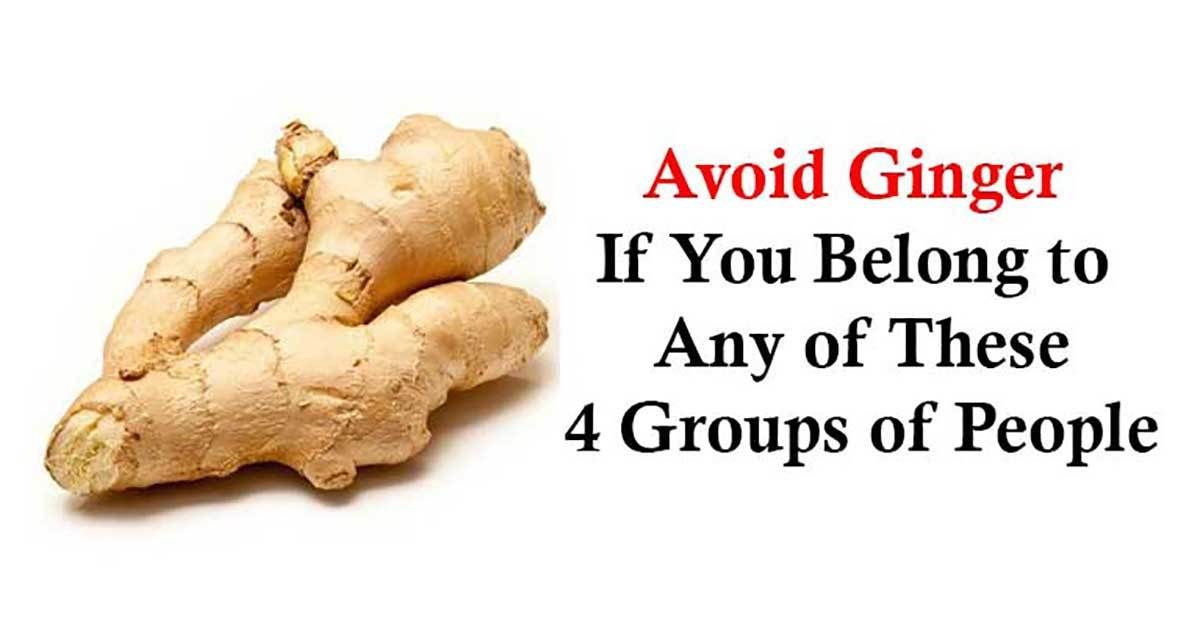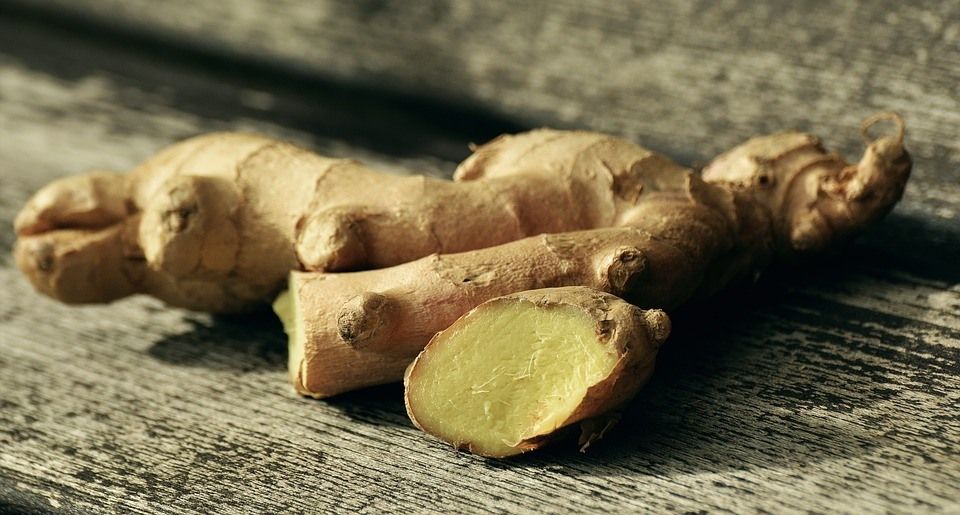You probably know that ginger is one of the healthiest plants in the world, containing hundreds of active compounds like gingerols and shogaols. But, did you know that you should avoid it in certain conditions?
Although ginger is famous for its potent anti-inflammatory and antioxidant properties, some people should avoid it because of the way it affects several medical conditions.
This plant is closely connected to cardamom and the equally famous turmeric.
Its health benefits are well-known for hundreds of years, and people use it as a natural remedy for many illnesses and diseases.
You can find it in ground, fresh, liquid, or capsule form.
Nutrition Info
A hundred grams of raw ginger contains:
- 8g carbs
- 8g protein
- 2g dietary fiber
- 7g fat
- 415mg potassium
- 43mg magnesium
- 34mg phosphorus
- 5mg vitamin C
It also contains traces of iron, niacin, copper, manganese, vitamin B6, zinc, calcium. riboflavin, pantothenic acid, and thiamin.
Popular Health Benefits of Ginger
Here are some of the most popular health benefits of this plant:
- Relieves nausea
- Treats fungal infections
- Prevents stomach ulcers
- Reduces period cramps
- Helps prevent cancer
- Reduces muscle and joint pain
- Lowers cholesterol levels
- Boosts the brain function
- Fights bacterial infections
- Reduces inflammation
- Improves digestion
Even though ginger is extremely healthy for most people, there are cases when you should avoid it.
When to Avoid Ginger
1. Blood Disorders
Ginger's ability to boost the blood circulation makes it great for people with Raynaud's disease, peripheral artery disease, obesity, and diabetes. But, the same thing makes it improper for people with hemophilia.
This blood disorder happens when the blood is not able to clot normally. That's why even a small injury can be detrimental to these people. What ginger does is neutralizing the effects of the medications for this condition.
In other words, it can aggravate the person's condition, and even lead to death.
2. Taking Certain Drugs
Avoid consuming this plant/spice if you take medications for hypertension or diabetes. When ginger combines with insulin, anticoagulants, or beta-blockers, it can alter their effects on the body.
Namely, it reduces the blood pressure levels and stimulates blood thinning, which means it decreases the drugs' effects.
3. Underweight
Avoid consuming ginger or taking it as a supplement if you're underweight. The reason for that is its high fiber content, as well as its ability to increase the secretion of digestive enzymes and stomach pH levels.
This, in turn, leads to a reduced appetite and more effective fat-loss.
So, if you are underweight and you consume ginger, you may experience the following symptoms: poor muscle mass, menstrual irregularities, and weight loss.
4. Pregnancy
Ginger is a natural stimulant, so it supports the muscle health and digestion. However, pregnant women should avoid it as stimulants can lead to premature contractions and labor.
Even doctors recommend pregnant women to avoid consuming this plant/supplement during the last trimester of the pregnancy.
Another reason why pregnant women should avoid ginger is that it disrupts the absorption of fat-soluble vitamins and dietary iron.
Ginger may help alleviate morning sickness, but pregnant women should always consult a doctor before consuming it.
Alternative to Ginger
If you're one of those who should avoid ginger, based on the above-given explanation, replace it with red paprika, cayenne pepper, or sweet peppers.
Peppers act similarly to ginger, according to Milka Raicevic, a world-famous nutritionist.
Besides, you have options "“ for spicy meals use red paprika, and for others use sweet peppers. As a bonus, add some paprika or cayenne pepper to lemonade, and you'll make a great beverage for detoxifying your body.
The post Avoid Ginger If You Have Any of These Conditions appeared first on The Real Positive Experience.


